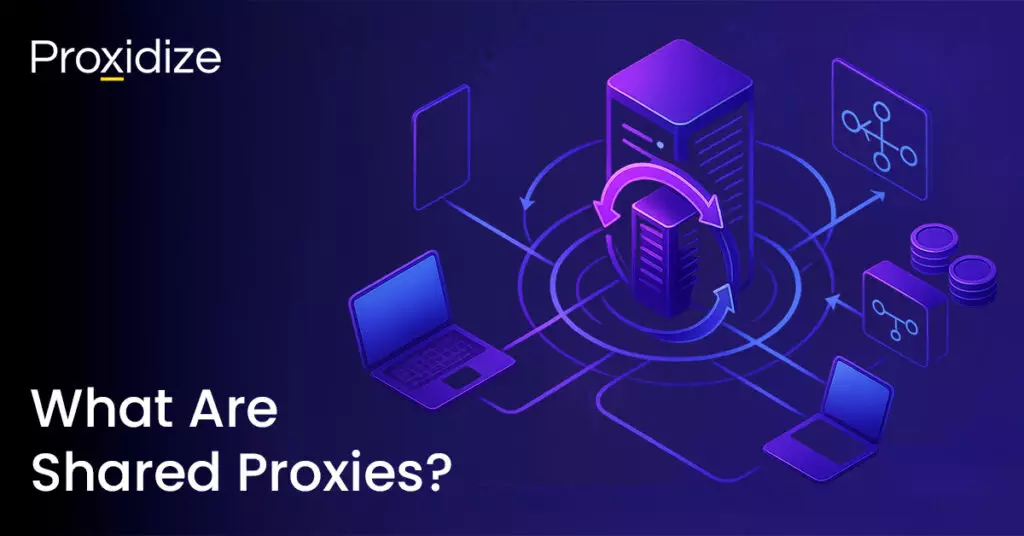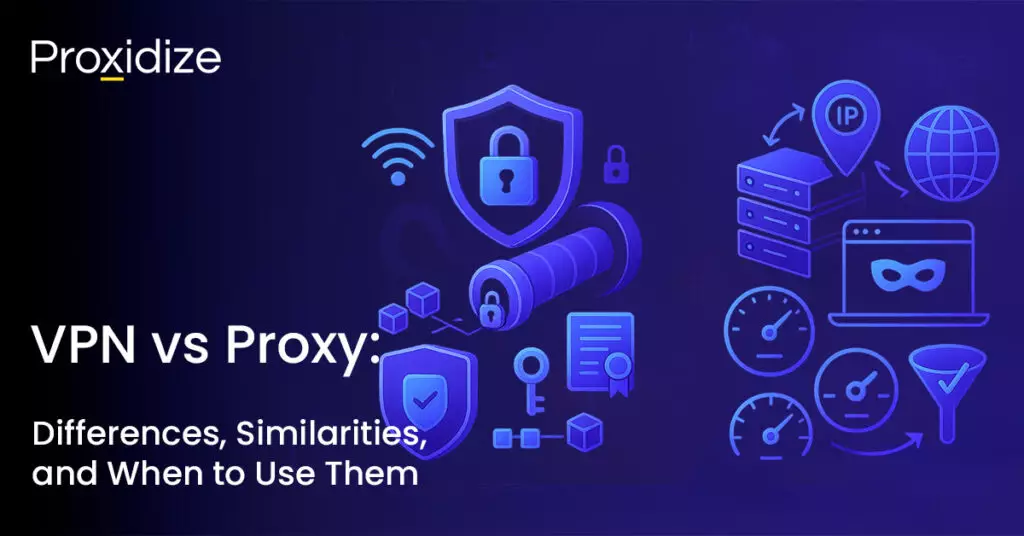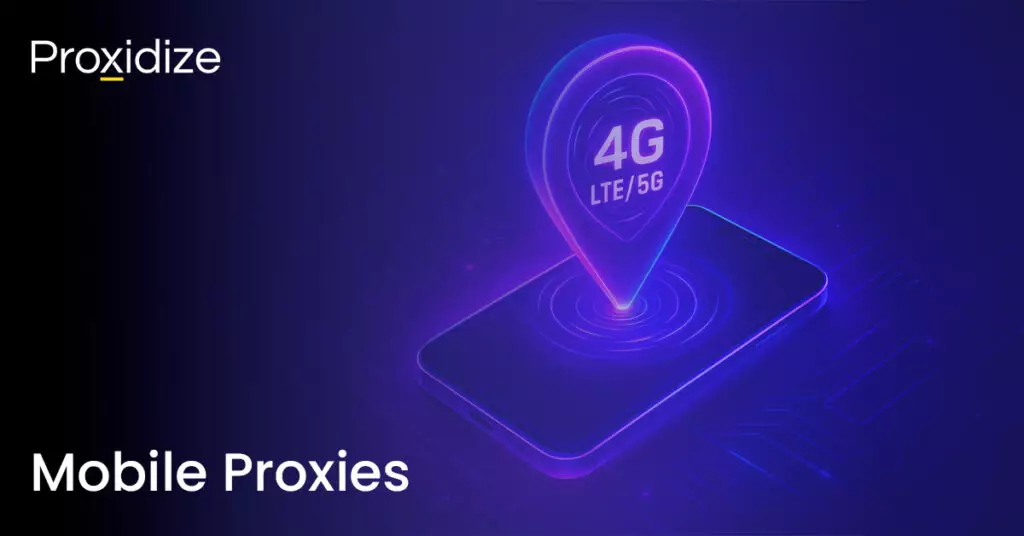At their most basic level, a proxy is a computer you connect to and whose IP and location you use when using the internet. A proxy provider will set up proxies all over the world and lease them to customers. The proxies you have access to can be collected in a proxy pool. By rotating proxies you select the next IP in the list. You can do this at random intervals, after a set amount of time, or even after every request.
A backconnect proxy is a way proxy providers give you access to a much more expansive proxy pool, and in this article we’ll explore what backconnect proxies are, what they’re used for, how they differ from other proxies, and explain why they are best suited to applications that require a high volume of IP rotations.
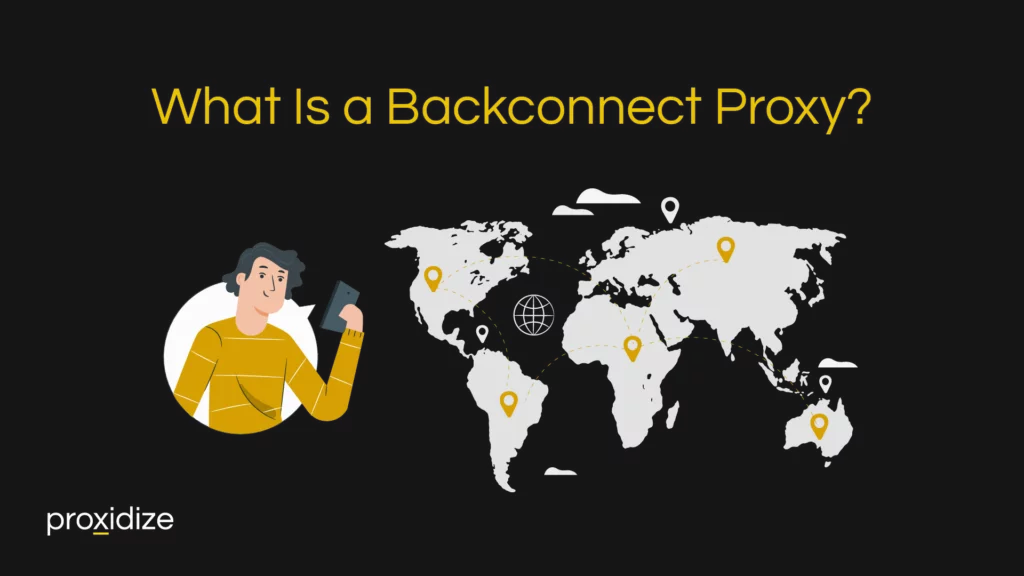
What Is a Backconnect Proxy?
What if you theoretically need hundreds of thousands or hundreds of thousands of proxies? Leasing a whole range of proxies and rotating IPs either manually or automatically won’t get you close.
This is where providers saw an opportunity to monetize access to their many proxies at scale. Backconnect proxies — also called pooled proxies — are a proxy server connected to a provider’s extensive proxy network as a way to gain access to their immense pool of IPs. The pool consists of the full range of IP addresses of the proxies at the provider’s disposal, usually residential proxies, mobile proxies, and datacenter proxies. Like most regular proxies, they mask a user’s original IP address, providing anonymity.
The key difference between leasing a range of proxies or using rotating proxies and using a backconnect proxy’s IP pool is the scale. The former can provide you with potentially thousands of IPs but the latter could theoretically offer millions. As such, backconnect proxies aren’t for everyone: the number of IPs can be overkill for most users and they are expensive. A second difference is that pooled proxies are managed by the provider, unlike other types of proxy.
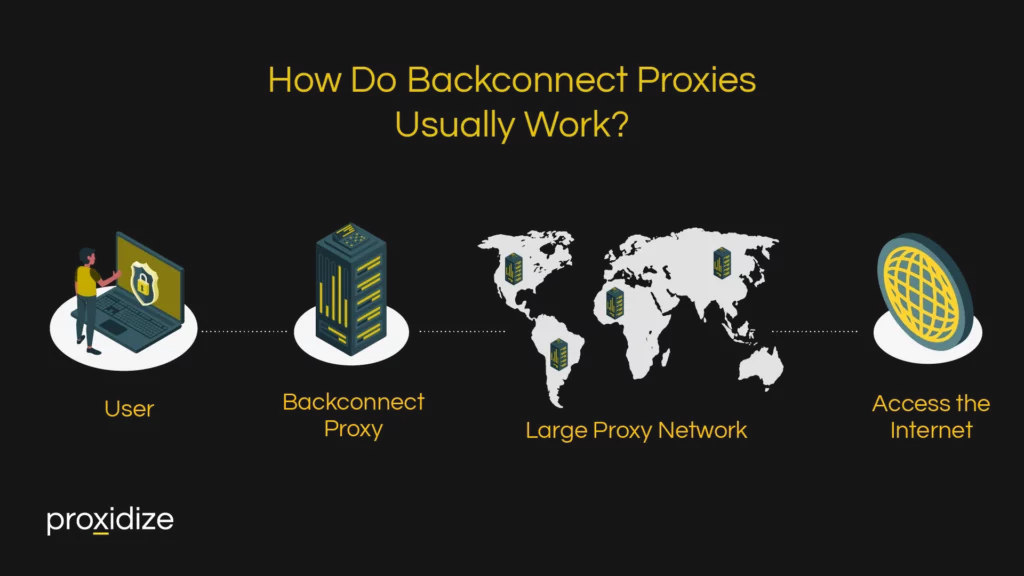
How Do Backconnect Proxies Usually Work?
When you connect to a backconnect proxy, you are connecting to a gateway that gives you access to a large rotating network. You send traffic through one endpoint, and behind it, the provider routes your requests through a different IP every time. Generally, some load balancing happens here to ensure that no individual IP is overwhelmed by requests. By routing your traffic through the pool, you’re given a new IP address between every request or at regular intervals, which you can determine with your provider.
The IPs in a pool are sourced from a provider’s residential proxies and mobile proxies and therefore, benefit from all the advantages they offer. This includes a high level of anonymity, as the IPs are those of what appear to be normal users, and a resistance to rate limiting for that reason.
One caveat of backconnect proxies is that the IP pool is shared by multiple clients. Many clients may be accessing the proxy at the same time, and that traffic is then dispersed among the available IPs. This is another reason why the aforementioned load balancing is relevant. This is, however, offset compared to using shared proxies — or leasing dedicated proxies that have been used by others in the past — in general, as the available pool of IPs is orders of magnitude higher.
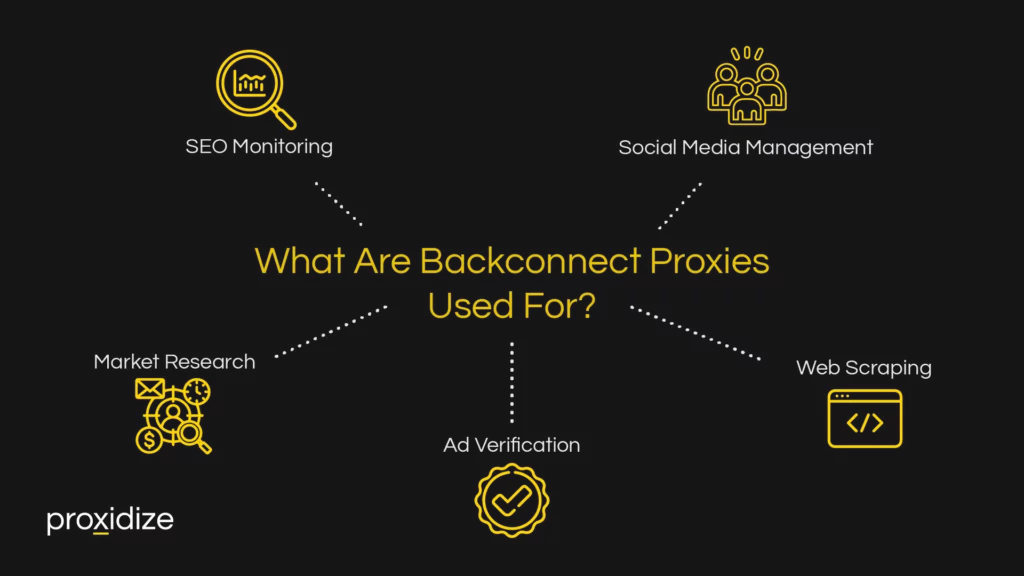
What Are Backconnect Proxies Used For?
The following online activities benefit from the large-scale IP rotation offered by backconnect proxies, allowing for more efficient, anonymous, and extensive online operations:
- Large-Scale Web Scraping: Automating data extraction from various websites, especially useful for large-scale scraping where avoiding detection and IP bans is crucial.
- Market Research: Gathering data from diverse online sources for market analysis, trend tracking, or competitive intelligence.
- SERP Scraping: Collecting the top search results for given keywords and scraping the top results. Frequent proxy rotation avoids blocks and a diverse pool of IPs provides variety in localized SERP results.
Pooled proxies are generally used by companies and people that need a vast quantity of IP addresses for their operations, where maximizing the size of the proxy pool is the primary requirement.
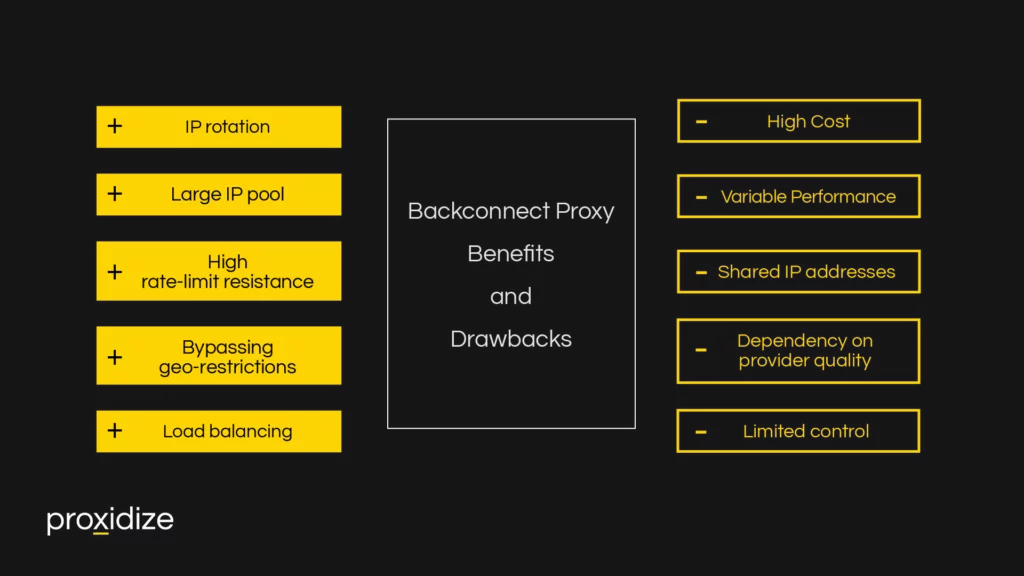
Backconnect Proxy Benefits and Drawbacks
Using backconnect proxies offers some clear advantages but also comes with some disadvantages. Putting these side by side may help create a clearer overview of their application in each use case.
Benefits
- Proxy rotation: Provides anonymity and reduces the likelihood of being blocked by rotating through a vast pool of proxies.
- Large IP pool: Offers access to a diverse range of IP addresses, including residential and mobile proxies.
- Efficient in large-scale projects: Facilitates high volumes of requests.
- High rate-limit resistance: Using an IP only for only a few requests, or just one, makes triggering websites’ anti-bot and anti-scraping measures less likely than leasing regular proxies.
- Bypassing geo-restrictions: For activities whose primary requirement is geo-hopping, then a backconnect proxy is likely an ideal fit.
- Less need for IP management: Avoid the need to develop software associated with leasing many proxies or setting up proxy infrastructure by relying on the provider-managed backconnect proxy.
- Load balancing: Associated with the previous point, a provider’s server will automatically ensure that no individual IPs are overloaded by clients’ traffic.
Drawbacks
- High cost: While, in theory, providers can offer an incredible number of proxies, using them to process large quantities of data may become prohibitively expensive very quickly.
- Variable performance: Speed and reliability can fluctuate based on the IPs in use, and users will have little control over the consistency of the individual connections.
- Shared IP addresses: As with all shared proxies, users will have to weigh the risks associated with proxies that are being used by others or have previously been used in the past.
- Dependency on provider quality: The quality of the IP pool, the effectiveness of the rotation of IP addresses, and the general quality of the service depends largely on the provider’s proxy network and management.
- Limited control: Users will have less control over the specific IP addresses and their locations, which might be a constraint for tasks requiring targeted geographic presence.
An example use case that could benefit from a backconnect proxy is large-scale social media SEO, where the quantity of data is relatively low but the need for a large amount of IPs is high. By comparison, large-scale web scraping or data extraction that handles a vast quantity of data might not benefit necessarily from backconnect proxies as it may rapidly become prohibitively expensive — in that instance acquiring the means to set up your own infrastructure to operate your own private proxies may be more appropriate.
Conclusion
A backconnect proxy server offers access to a provider’s vast IP pool. It works by routing incoming traffic through the provider’s proxy pool.
Key takeaways:
- They can give you access to a vast ip pool
- Provider-managed proxy rotation
- The solution for specific use cases
- Come with higher costs and complexity
- Have trade-offs due to shared nature
In short, they’re best used in large-scale activities that require hundreds of thousands or millions of IPs and the anonymity and resistance to rate-limiting that offers. However, they come with some drawbacks, such as a high cost and slower connection speeds.

